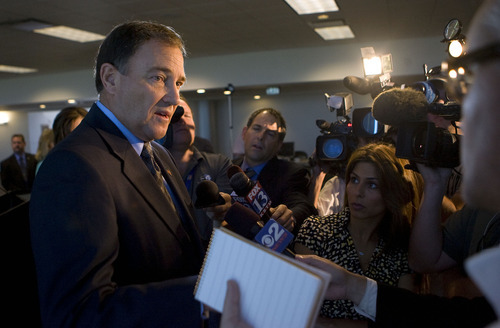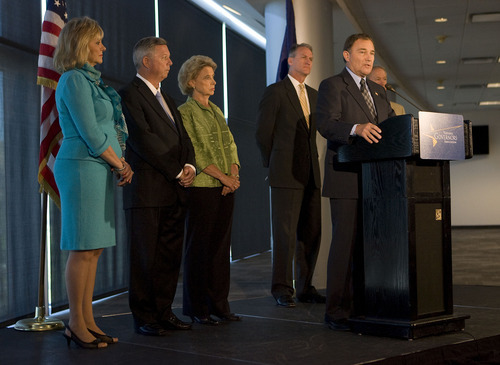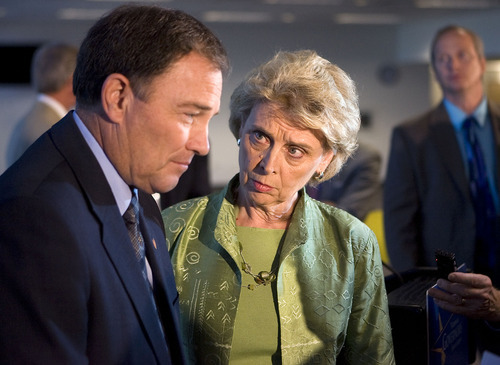This is an archived article that was published on sltrib.com in 2011, and information in the article may be outdated. It is provided only for personal research purposes and may not be reprinted.
The showdown between the White House and Congress over raising the debt limit threatens the economic recovery and needs to end, governors gathered in Salt Lake City said Friday.
"Out in the nation we can ill afford the debate that's going on in Washington, D.C.," said Washington Gov. Christine Gregoire, a Democrat. "The point I'm making most importantly, and I think all governors agree, is get on with it."
Nebraska Gov. Dave Heineman, a Republican, certainly agreed. He said the United States cannot default and governors are prepared to share in some of the cuts, if necessary, but a deal needs to be reached.
"Drop some of this partisanship and do what is right for America," Heineman said. "Make a decision back there."
Thirty-two of the nation's governors are gathering in Salt Lake City this weekend for the National Governors Association's annual summer meeting, and the rocky negotiations over the debt ceiling were the leading topic during a news conference on the opening day.
The White House says Congress has until Aug. 2 to raise the nation's debt limit — which now stands at $14.3 trillion — or the United States will default on its obligations. President Barack Obama warned in a news conference Friday that "we are obviously running out of time."
Utah Gov. Gary Herbert, a Republican, took a somewhat different tack. He argues Washington needs some incentive to control runaway spending and that forecasts of dire consequences if the debt ceiling is not raised are merely "crystal-ball gazing."
"I do know this: We need to bring some fiscal restraint to our spending in government. We cannot be this nanny state where we do everything for everyone from cradle to grave," Herbert said. "We have developed an entitlement society we need to get away from."
Herbert is one of five governors who has signed a "Cut, Cap and Balance" pledge, which insists that, before officials boost the debt ceiling, they should make significant cuts, cap future spending and pass a balanced-budget amendment.
"I do not believe it's an impediment. I believe it is a catalyst," Herbert said. "I signed it because I believe that is a good approach to solve the fiscal irresponsibility in Washington."
The White House has argued for closing tax loopholes and other ways to raise revenue, which Republicans are resisting.
Gregoire, chairwoman of the governors association, said states should be consulted because 33 cents of every nondiscretionary dollar sliced falls to the states, but cuts need to occur.
"If not done right — and I'm not exaggerating here — because of how fragile the recovery is in some of our states, it can trigger them to slide back again," she said. "Having said that, there's not a governor that doesn't understand that cuts have to be made. … We're willing to work, we're willing to help. But we cannot belabor this issue. It's hurting the economic recovery."









